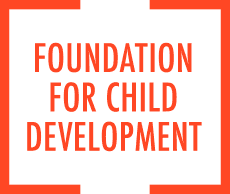https://www.fcd-us.org/reaching-all-children-understanding-early-care-and-education-participation-among-immigrant-families/
| As communities strive to ensure the success of all children, it is important that policymakers and early education professionals identify and respond to the needs of immigrant families so that teachers, schools, and early childhood programs are prepared to serve these children.
High-quality, early education is critical to prepare children to succeed in kindergarten and beyond. Research shows that high-quality, early education programs can particularly benefit low-income children and those most at risk of school failure by supporting their healthy development across a range of measures. One out of every five children in the United States is the child of an immigrant - and many of these children are at risk of school failure. Children in immigrant families are the fastest growing segment of the nation’s child population. Participation in quality early education programs could be particularly beneficial for children of immigrants who face multiple risk factors; yet these children appear less likely to participate in such programs. Young Children of Immigrants Appear Less Likely to Participate in Early Care and Education Programs. Young children of immigrants are less likely to participate in every type of non-parental care arrangement than children of U.S.-born citizens and are more likely to be in the care of a parent. Even when both parents work at least part-time, young children of immigrants remain more likely to be in parental care or without a regular child care arrangement. When immigrant families use non-parental care, infants and toddlers are more likely to be in relative care and 3- to 5-year-olds are more likely to be in center-based care, as are children of U.S.-born citizens. Children of immigrants are less likely to attend preschool compared to children of U.S.-born citizens. Factors Affecting Participation in Preschool and Center-based Care Multiple factors likely contribute to the lower participation of immigrant families in early education:
Policy Recommendations for States and Local Communities To ensure that immigrant families are served by quality early education programs, states and local communities could:
Questions for Further Research Additional research is needed to determine why young children of immigrants are under-served in early care and education programs, and identify effective practices and policies for ensuring that immigrant families are able to access culturally appropriate, quality programs that fit their needs. Reaching All Families? identifies several questions to guide future research in this area. |
